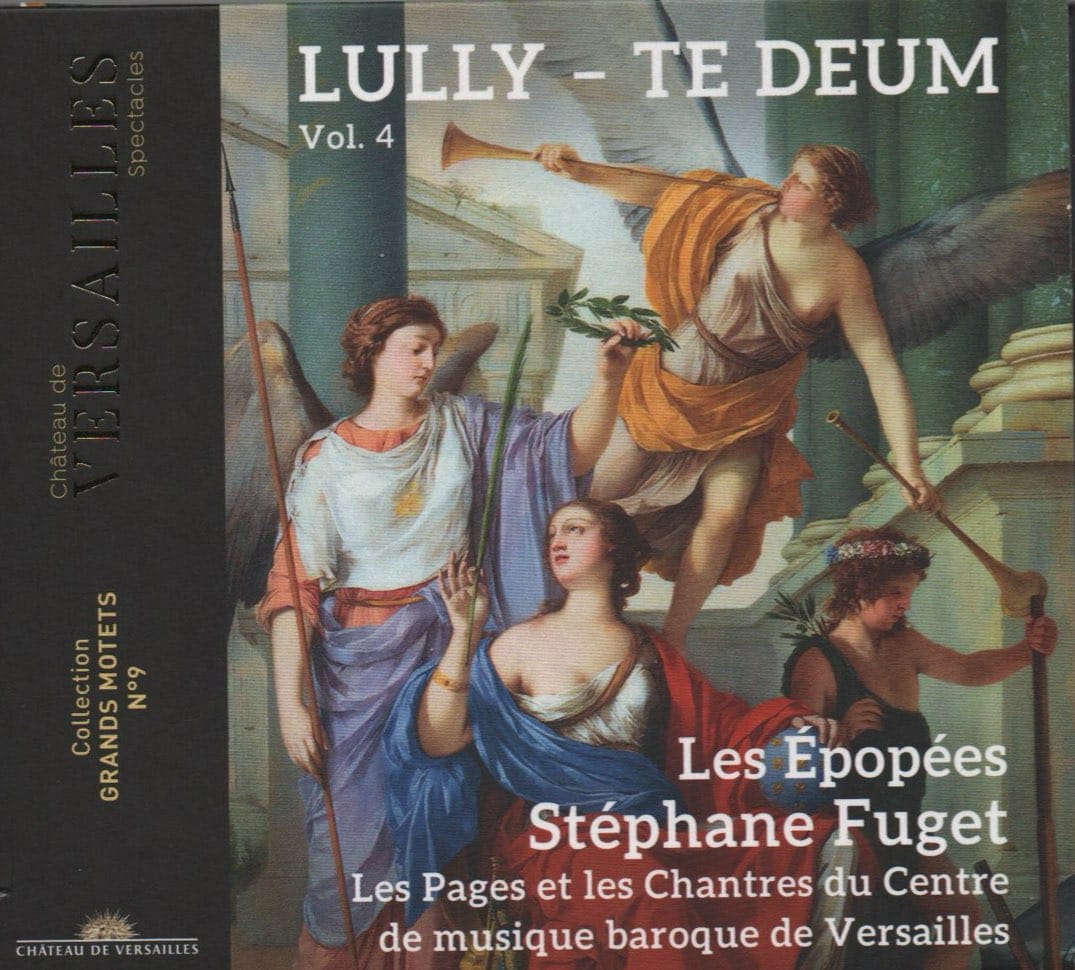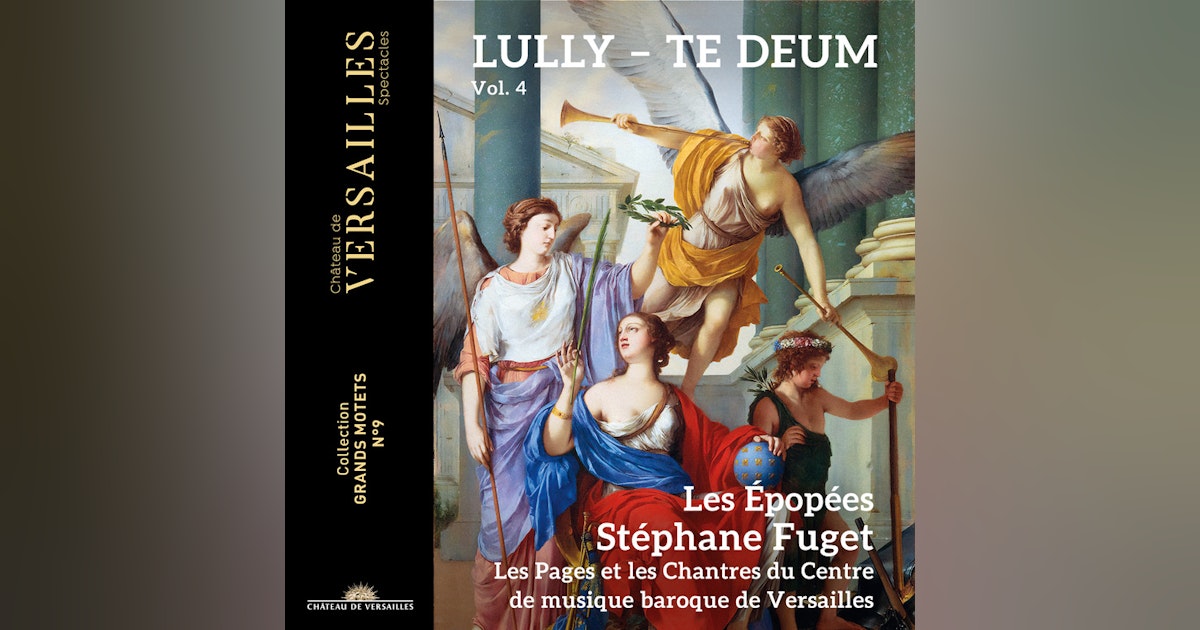
I was privileged to hear Fuget rehearse Lully in the Versalles Chapel. It really is a phenomenal experience, and all credit for the label engineers here for capturing the famous acoustic so well for this fourth volume (in the “Collection Grands Motets” series). Here’s the promo video:
The major work here is the Te Deum, LWV 55, first performed at Fontainebleu to celebrate the.christening of Louis (eldest son of Louis XIV and Marie Therèse); it was also given in January 1687 to celebrate the King’s recovery from an operation (related to the famous foot-stamping incident that resulted in gangrene and, sadly, eventual death).
A drum tattoo (Jacques Duncan Phildor’s Marche de timbales faite pour Philidor Cadet) leads to the most astonishing brass fanfare – together offering a most syncopation-rich opening – that blossoms into full orchestra for André-Duncn Phildor’s La Marche Royale. Contrasting sections for strings sound perfectly “of” Lully, their gestures familiar from many an opéra. The zest of the performance is extraordinary. A ceremonial piece such as this motet would indeed have been preceded by such musical pomp at the time:
The Te Deum itself begins with an extension of just that pomp. the engineers and performers are clearly familiar with the space of the Versailles chapel (it is huge), and so enable string detail to come through nicely. “Dominus deus sabaoth” sings beautifully:
The work is of massive emotional remit: “Te per Orben” is massively contrastive:
“Tu, ad liberndum” is spectacularly deep, and here it is the tenor that steps forward so spectacularly. This is the still centre of the work.
The contrastive element is writ large in the extraordinary dissonances of the solo voices in the penultimate “Miserere nostri Domine”and the final celebratory “In te, Domine, speravi”:
The opening of the psalm Exaudiat te Dominus (LWV 77/15) could hardly be more different: jaunty, dance-like, almost as if from an opera not the church. It is fitting as it was often performed at celebratory events, especially after the Te Deum. The work positively bounces along:
I am not sure why the soloists are not identified on this release: the soprano for “Tribute obi secunmdum cor teum” is extraordinary:
And the breezy intensity of “Hi in curribus” is remarkable, a movement that itself contains maximal contrasts, here with the solo voices:
The choral contributions reflect the excellence of the Centre de mystique baroque de Versailles, while Fuget’s own group Les Épopées is on top form throughout. The Psalm might be shorter and concise, but it is absolutely radiant, the final trumpet-encusted chorus properly glorious:
A spectacular disc of truly Baroque splendour, and a salutary reminder of the genius of Lully.
We covered Volume Two in this series of Lully Motets here. Volume Four is an “Amazon Choice” and is available here.










